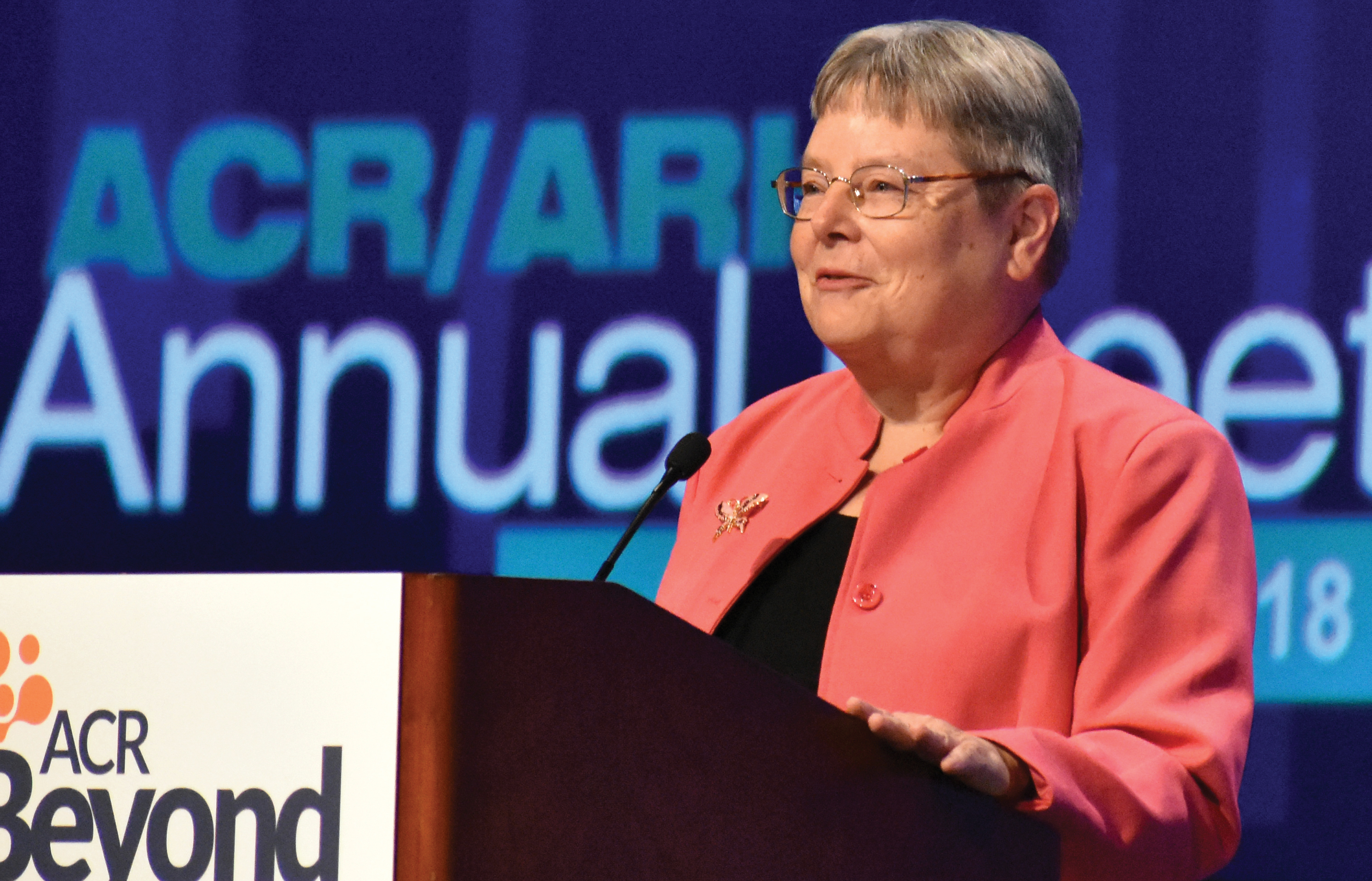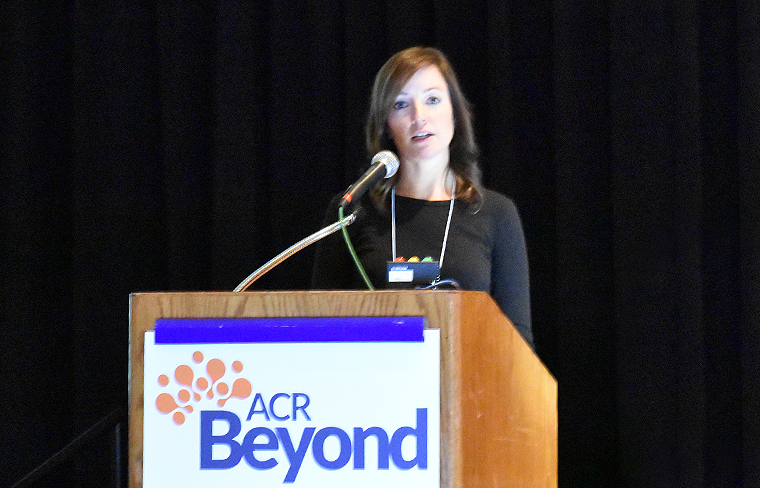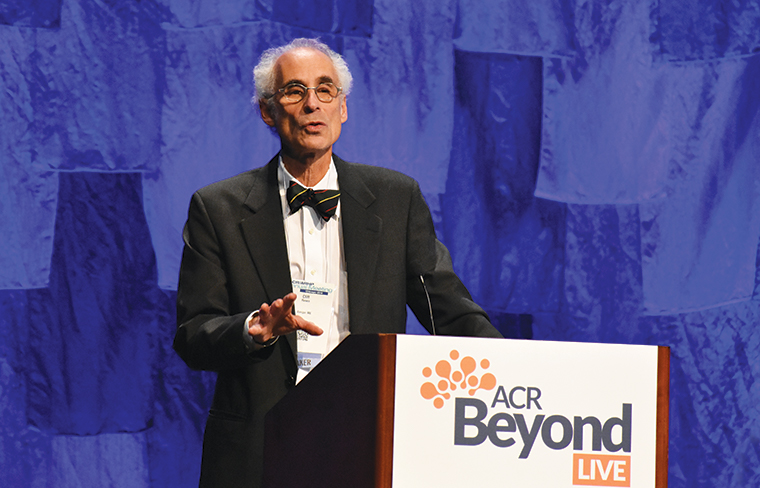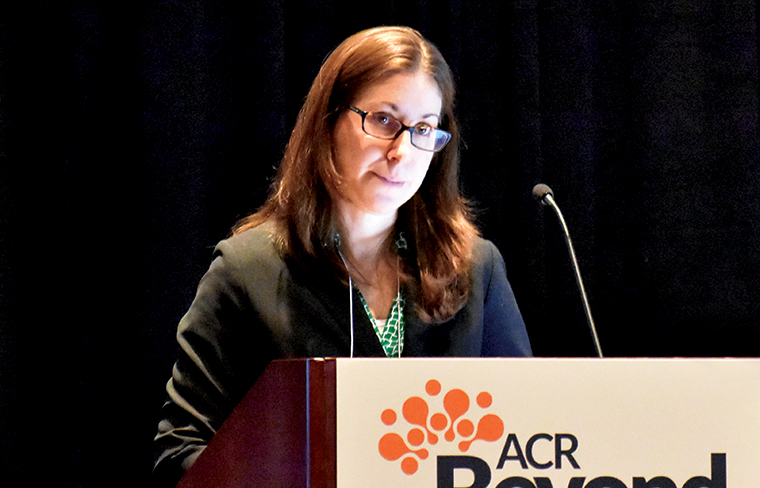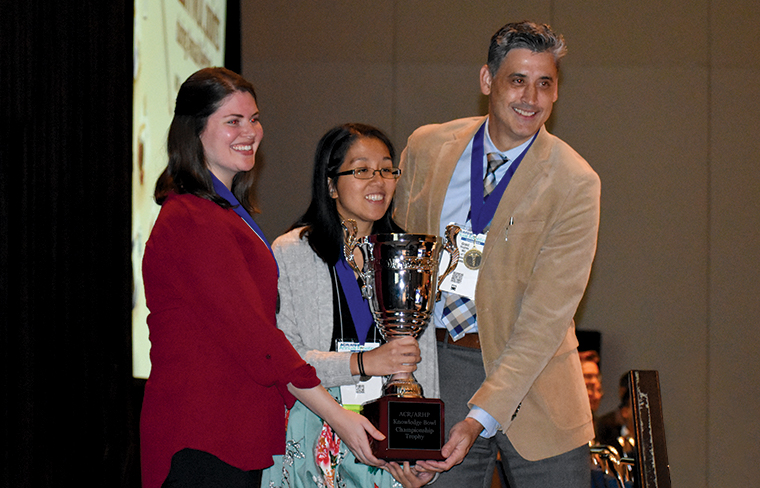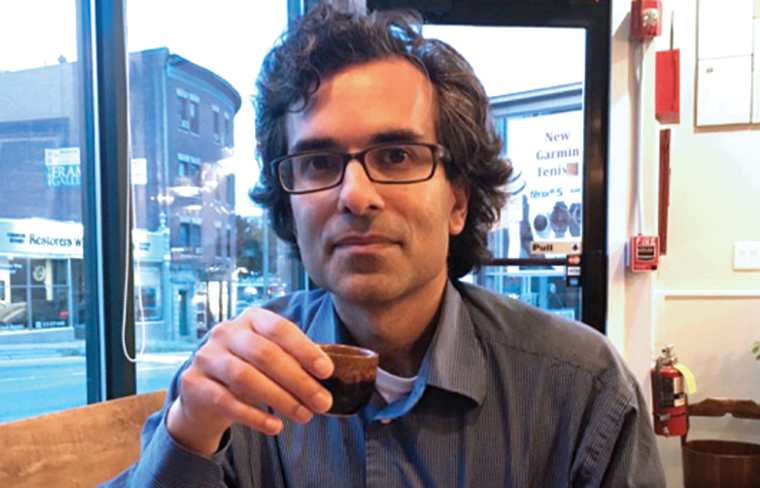-
2018 Great Debate examines questions about hydroxychloroquine dosing guidelines
Rheumatologists know HCQ as the single most useful agent for lupus, and ophthalmologists know HCQ as a preventable cause of retinopathy that can result in blindness. Ophthalmologists, not rheumatologists, published the latest guidelines.
-
Treat-to-target strategy helps halt progression, sustain remission
During Monday’s Paul Klemperer, MD Memorial Lecture, Josef S. Smolen, MD, discussed the pathways to joint destruction in RA and reviewed evidence supporting the relationship between clinical disease activity and progression of articular damage.
-
Filgotinib shows promise in treating psoriatic arthritis
Filgotinib, an oral selective Janus kinase 1b(JAK1) inhibitor, showed positive results in a phase II placebo-controlled study for active psoriatic arthritis (PsA).
-
Research sheds new light on celiac disease relationship to autoimmune diseases
Celiac disease is a unique model of autoimmune disease. It’s the only autoimmune disease for which the trigger is known.
-
Rarity of scleroderma makes evidence-based research into non-pharmaceutical interventions difficult
More research is needed using multisite, different research designs, and involvement of people with scleroderma to determine evidence-based non-pharmaceutical interventions for scleroderma, according to this year’s ARHP Distinguished Lecturer.
-
Obesity should be part of primary intervention for OA and OP patients
The central role of the adipocyte in the pathogenesis and treatment of osteoporosis was the focus of this year’s Oscar S. Gluck, MD Memorial Lecture by Clifford J. Rosen, MD.
-
Studies result in new, updated FDA safety warnings
Rachel L. Glaser, MD, Clinical Team Leader, Division of Pulmonary, Allergy, and Rheumatology Products for the FDA, reviewed the results from the PRECISION trial and other studies impacting rheumatology.
-
UW’s Neutrophil NETs win 2018 Knowledge Bowl
The team of Jean Liew, MD, Joanna Marco, MD, and Grant Hughes, MD, from the Univeristy of Washington held off the Cuse Crusaders and defending champion House of DMARDs on Monday.
-
Latest research into innate immune system disorders is changing thinking about autoinflammatory diseases
Research on a range of inflammatory conditions has led to insights with far reaching practical implications that are changing the way rheumatologists think about autoinflammatory diseases.
-
AMP research projects offer new insights in single-cell technology
The Accelerating Medicines Partnership (AMP) is beginning to see early data from its network of investigators working in rheumatology. Some of that early data will be shared at an ACR Basic Science track session on Tuesday.

